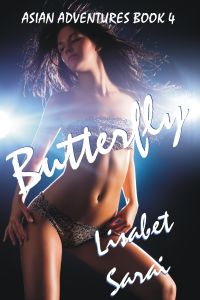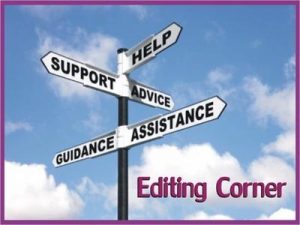by Jean Roberta
“Whan that Aprill with his shoures soote/The droghte of March hath perced to the roote . . Than longen folk to goon on pilgrimages,/And palmeres for to seken straunge londes.” –
(When April’s sweet showers have demolished the drought of March . . . then people want to travel, and religious pilgrims want to visit strange lands.)
– Geoffrey Chaucer, Prologue to the Canterbury Tales, circa 1380s.
I’m currently making plans to go to Eroticon (annual conference of the erotic arts) in London, England, with my spouse on the weekend of March 17-18, 2018. This will require several plane rides through different time-zones because we live in the middle of Canada. I can’t afford to spend more than a week away from the classes I teach, even with capable grad-student substitutes.
There are too many writers’ cons held every year throughout the world for one writer to attend. Most of them, as far as I know, are held in the U.S., but I’ve heard scary stories about how hard or at least unpredictable it has become for people from other countries—even Canada—to be allowed in under the current regime. So I decided to go to England instead. I’ll probably go to more writers’ cons in the U.S. in the future, after the regime has changed.
Why go to a writers’ conference? Here are some obvious reasons:
– To network with other people in the publishing world, preferably with those who write, edit and publish in one’s own genre,
– To learn more about the crafts of writing, promotion, and negotiation, and to get first-hand news about calls-for-submissions, contests, jobs, and to get a feel for different publishers, trends, and writing groups.
– To promote a personal project.
– To add experience to a resume or CV. (This especially applies to academics.)
Here are some less-obvious reasons:
– To take a trip away from home! Why not?
– To socialize in person with on-line friends.
– To check out a particular city as a possible place to live.
– To breathe polluted air for a weekend, the better to appreciate the fresh air of the Canadian prairies when one comes home. (This reason probably only applies to me.)
Of course, there are downsides to writers’ cons. I consider myself very lucky not to have experienced the kind of drama I’ve heard about from other writers. Here are some disadvantages of going to a con, in ascending order of importance:
– Expense!! It often seems that those who need the most financial help get the least. Academics, especially those who teach literature, composition, or creative writing in some form, can often get a trip to a writers’ con subsidized by their employers, and the more socially-conscious writers’ cons offer their own subsidies, but those who work outside the Ivory Tower and don’t know anyone who could take them in during a con can pay a considerable amount for travel to the site, accommodation, food, city transportation, conference fees, entertainment, and impulse shopping. The cost of a trip can cut into a writer’s writing profits, if any, without producing any quantifiable return on the investment.
– Isolation. This can take various forms, depending on the circumstances. Writers tend to be introverts, and newcomers can find it hard to connect with those who seem successful and connected.
– Ostracism, rejection, sarcasm, confrontation, turf war. This is the stuff of nightmares, and possibly the inspiration for one’s next horror novel. (When given lemons, writers often find ways to make lemonade.)
Writers in some genres vehemently reject other genres. Sex-writers, in particular, have been sneered out of rooms. Romance, which seems like erotica’s closest cousin, is both widely popular and still widely rejected by writers and institutions which claim to be intellectual, avant-garde, or unflinchingly honest about the hell of this world.
Professional rivalry and political in-fighting (of the more-woke-than-thou variety) are additional obstacles that have caused some con-goers to say they will never return.
– Unforeseen disasters. What insurance companies define as “acts of God” (extreme weather, plane and train crashes, accidental fires, epidemics) are more likely to happen to travellers than to folks who follow a routine at home. Deliberate sabotage in the form of bombings and shootings tends to happen more in large cities than in less-populated areas. (Where I live, “terrorist threat” means the possible contamination of the wheat crop.) I assume that writers who already live in large cities have developed a tough-enough shell not to find writers’ cons any scarier than everyday life. And again, lemons can be the raw material for lemonade, as long as one survives.
So there it is. I find the lures of writers’ cons to be more compelling than the possible drawbacks, especially since the university where I teach encourages “professional development” in the forms of readings and attendance at cons. I’ll probably keep going to them as long as I’m able to board a plane.
Chaucer would probably be amused.







